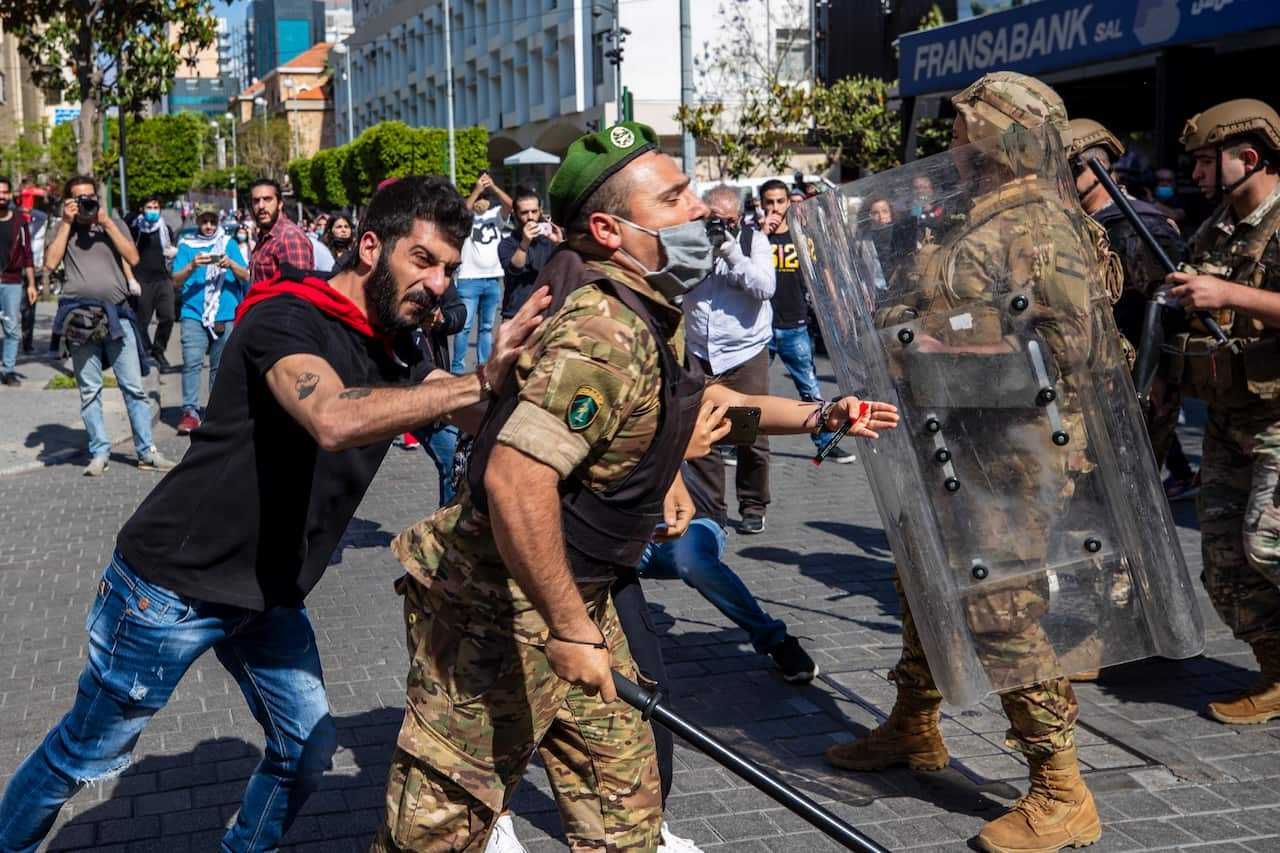Women and girls in Lebanon are struggling to access basic hygiene products, Plan International says, as protesters return to the streets and the government seeks urgent economic support.
A survey of 1,100 girls, boys and guardians living through the Middle Eastern country's economic crisis in April found many were facing the coronavirus pandemic without access to basic amenities and healthcare.
More than 60 per cent of adults surveyed also said they did not have enough food to last two weeks.

“While findings are shocking across populations, our assessment clearly shows Syrian refugee girls are being hit the hardest in the COVID-19 pandemic," said Colin Lee, Plan International's director for the Middle East.
"Among 35 per cent of adolescent girls who reported they do not have access to menstrual supplies, an overwhelming two-thirds were Syrian refugee girls."
Lebanon is home to an estimated 1.5 million Syrian refugees, according to the United Nations High Commissioner for Refugees, many of who live in crowded camps.
The country has been battling a severe economic crisis and on Saturday sought financial aid from the International Monetary Fund.
“If we get [IMF support], and God willing we will, it will help us to pass through this difficult economic phase, which could be three, four or five years,” Prime Minister Hassan Diab said.
Rooted in decades of state waste, corruption and bad governance, the crisis is causing mounting financial hardship and fuelling unrest.
Following the lifting of strict COVID-19 restrictions, anti-government protesters have returned to the street.
A protester was killed during rioting in the northern city of Tripoli this week and dozens of soldiers have been wounded in the unrest.
“The pandemic is compounding the impact of Lebanon’s severe economic crisis and affecting the most vulnerable in society," Mr Lee said.
"It has made life much worse for vulnerable Lebanese and Syrian refugee girls who are now battling hunger, risk of violence, poor hygiene and lack of access to sexual and reproductive health services.”

